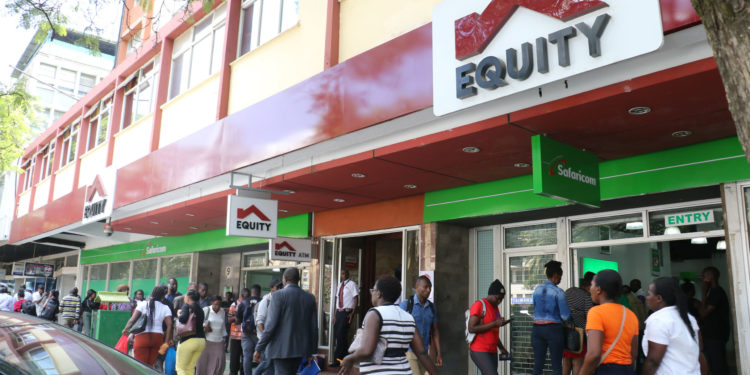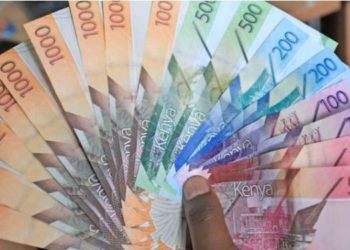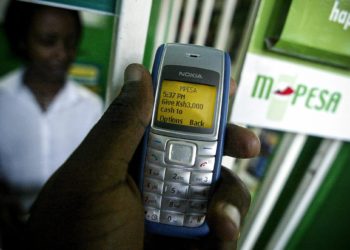Equity Group Holdings has cemented its position as a global leader in sustainable finance, emerging as the world’s second strongest banking brand, according to Brand Finance’s latest rankings. The group’s 2023 Sustainability Report, themed “A Sustainable World is a Transformed Africa,” reveals how the bank’s innovative strategies have bolstered its brand reputation while driving significant socio-economic and environmental impact across the continent.
At the heart of Equity Group’s success is its tri-engine business model, which integrates economic, social, and environmental priorities into its core operations. This approach has positioned the bank as a pioneer in corporate sustainability and social responsibility. Over the past year, the group has demonstrated remarkable progress in areas ranging from climate finance and nature risk management to financial inclusion and community development.
Dr. James Mwangi, Managing Director and CEO of Equity Group, emphasized the institution’s holistic strategy at the report’s launch, stating, “Our business model encompasses a tri-engine approach with an economic focus, a social focus, and a nature and environmental focus, all working to achieve positive impact. We have not only applied our efforts to realizing social impact but also have a strong focus on environmental and nature stewardship.”
Driving Global Leadership in Climate Finance
Equity Group’s leadership in climate finance has been a major contributor to its brand strength. Partnering with the International Finance Corporation (IFC), the bank has completed 47,000 climate-related transactions, the highest number globally among 258 financial institutions. These transactions address both climate mitigation and adaptation initiatives, solidifying the group’s commitment to combating climate change.
As an early adopter of the Task Force on Nature-related Financial Disclosures (TNFD), Equity Group has also pioneered the integration of nature risk management into its decision-making processes. The bank conducted the first nature and biodiversity risk assessment on its mining and agricultural sectors, setting a precedent for the financial industry in Africa.
“The role of the private sector in delivering a more sustainable world is key,” said Zainab Bangura, UN Under-Secretary-General and Director-General of the United Nations Office in Nairobi, during the report’s launch. “Equity is leading the way in showing the world that profitability and sustainability can co-exist.”
Impactful Social Initiatives and Financial Inclusion
Equity Group’s commitment to social impact is evident in its extensive social programs and financial inclusion initiatives. Through the Young Africa Works Programme, the group has created over 1.26 million jobs, contributing significantly to economic resilience and empowerment across the continent. The bank’s focus on education and leadership development has also been transformative, with the Wings to Fly and Elimu scholarship programs providing over 60,000 comprehensive high school scholarships and supporting nearly 24,000 university scholars through the Equity Leaders Program.
The group’s financial inclusion strategy is equally robust. Leveraging digital banking platforms, mobile banking, and agency networks, Equity has expanded its services to underserved populations, achieving over 240.7 billion transactions via mobile and internet banking in 2023 alone. This digital expansion has enabled the bank to reach millions of unbanked individuals across its seven markets: Kenya, Uganda, Tanzania, South Sudan, Rwanda, the Democratic Republic of the Congo (DRC), and Ethiopia.
Equity Group Foundation’s enterprise development initiatives have further stimulated job creation and economic growth by training over 2.4 million youth and women in financial education and providing entrepreneurship training to more than 517,000 micro, small, and medium-sized enterprises (MSMEs).
Environmental Stewardship and Innovation
Environmental stewardship is a core pillar of Equity Group’s strategy. The bank has implemented numerous initiatives to reduce its carbon footprint, including energy-efficient practices across its branches, water and waste reduction efforts, and the promotion of renewable energy. In 2023, the group planted over 25 million trees and distributed more than 420,000 clean energy products, contributing to the conservation of natural resources and the fight against climate change.
The group also aims to achieve zero waste to landfill across its operations. In Kenya, for example, the bank has adopted a circular economy approach by recycling 316 tons of paper waste, engaging e-waste recyclers, and replacing single-use plastics with sustainable alternatives. These initiatives reflect the group’s commitment to environmental responsibility and sustainable growth.
“We must begin to think of a shift in narrative,” said Wanjira Mathai, Managing Director of the Africa Division at the World Resources Institute. “Instead of only envisioning the Africa of tomorrow, we must also concentrate on the Africa of today.”
Strategic Partnerships and Global Recognition
Equity Group’s sustainability journey is supported by strategic partnerships with Development Finance Institutions (DFIs), global implementation partners, and social institutions. These collaborations have enabled the group to deliver diverse social and commercial outcomes with lasting impact. The Africa Recovery and Resilience Plan (ARRP) further underscores the group’s ambition to drive long-term transformation across the continent.
Professor Isaac Macharia, Chairman of Equity Group, highlighted the significance of these partnerships, saying, “Our strategic ambition requires the support and participation of diverse stakeholders. Sustainable institutions are better placed to thrive and create value for all stakeholders in the long term.”
The group’s achievements have not gone unnoticed. In addition to being ranked the second strongest banking brand in the world by Brand Finance, Equity Group was named the Best Bank for Corporate Social Responsibility in Africa for the second consecutive year by Euromoney. The bank’s reputation for sustainability, innovation, and impact-driven growth has positioned it as a leader in both the African and global financial landscapes.
Looking Ahead
As Equity Group continues to strengthen its brand and expand its influence, the bank remains focused on its vision for a sustainable future. By integrating social, economic, and environmental goals into its core business model, Equity Group not only reinforces its market position but also sets a benchmark for other financial institutions worldwide.
“Our efforts are proof that sustainability is not just a moral imperative but a strategic advantage,” said Dr. Mwangi. “We are committed to driving positive change for our stakeholders and the communities we serve, ensuring that our growth goes hand-in-hand with the prosperity of the continent.”


















